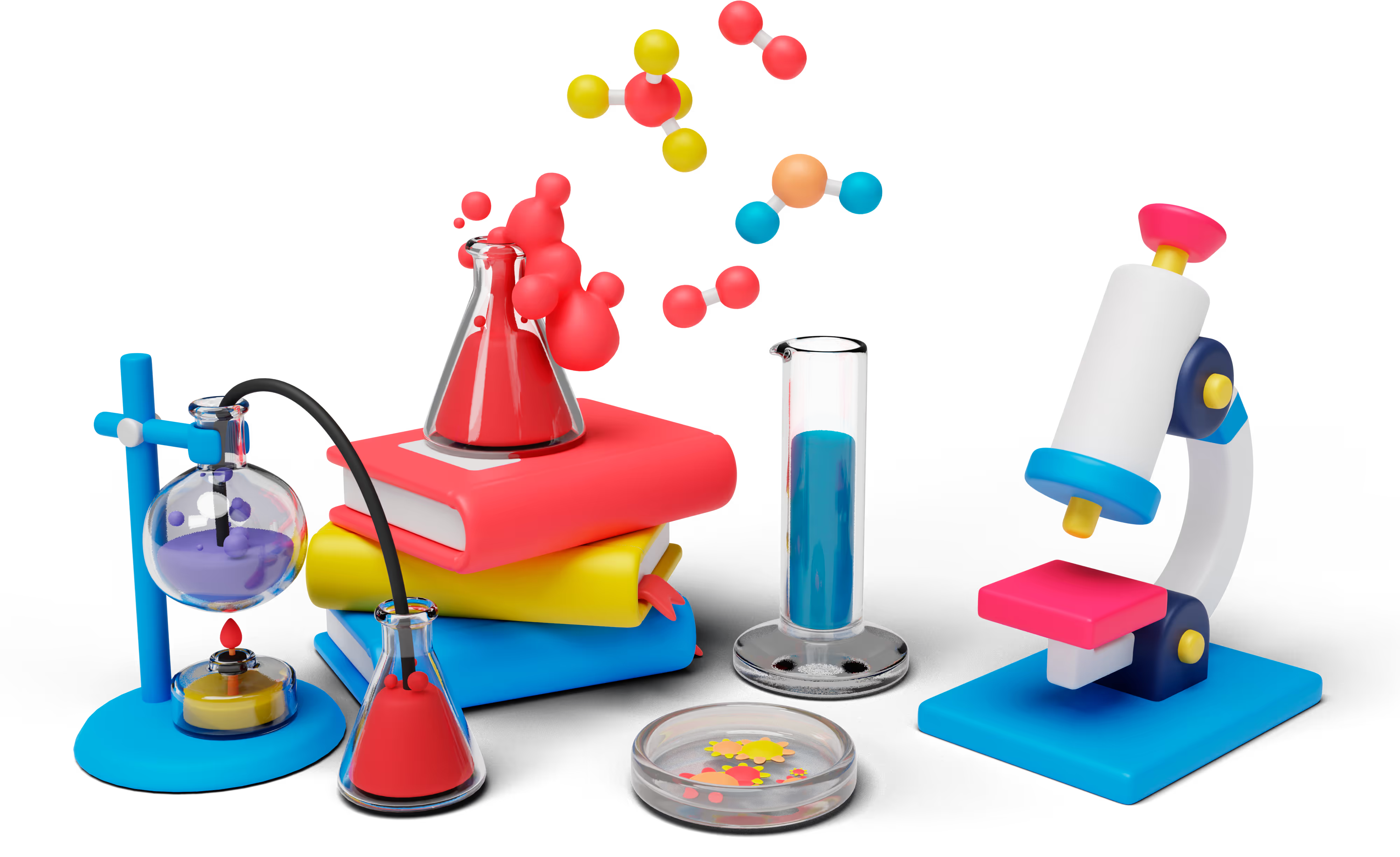IGCSE Chemistry covers foundational concepts in chemistry including atomic structure, chemical reactions, acids and bases, organic chemistry, and environmental chemistry. The subject emphasizes both theoretical understanding and practical skills through laboratory work, preparing students for further study in chemistry and related fields.
Cambridge 0620
IGCSE Chemistry

Peer Crafted Study Notes
The notes here are hand made by students for students ensuring that they are written from a similar perspective, ultimately making it easier to comprehend and learn from. We strive to retain short yet comprehensive notes. Hence, you will see us hitting all the important concepts and details you could possibly need without making it too wordy. Whether it's for last minute revision, or understanding the whole concept, we got you!
Author
Tahsin Sadiq Rafin, Sir Gator III, Kanza Mahmood
Syllabus Year
2023-2025
Full Syllabus Coverage
Immerse yourself in carefully crafted subject specific notes by our continuously hardworking team! Our notes are specially made to cover the whole IGCSE or A-level syllabi with a good eye for the most frivolous of details, up to the most crucial concepts. As students we always doubt if we accidentally dropped an important concept or missed a pivotal detail, with our notes you won’t need to worry any longer. We cover everything you need to know to ace your exam, so don’t worry, you’ll be getting a good night’s sleep before your exams!
States of Matter
Understanding the three states of matter (solid, liquid, gas), changes of state, and the particle theory.
Atoms, Elements, and Compounds
Study of atomic structure, elements, compounds, mixtures, and chemical symbols and formulas.
Stoichiometry
The quantitative aspect of chemical reactions, including molar relationships, balancing chemical equations, and calculating reacting masses and volumes.
Electrochemistry
Exploration of electrical conductivity in different substances, electrolysis, and its applications.
Chemical Energetics
Study of energy changes during chemical reactions, exothermic and endothermic processes, and energy transfer.
Chemical Reactions
Understanding the rates of reaction, factors affecting reaction rates, and the concept of reversible reactions and equilibrium.
Acids, Bases, and Salts
Properties and reactions of acids and bases, pH scale, and methods of preparing, identifying, and testing salts.
The Periodic Table
Understanding the arrangement of elements in the Periodic Table, periodic trends, and the properties of groups and periods.
Metals
Properties of metals, extraction of metals from their ores, and the reactivity series of metals.
Chemistry of the Environment
Study of environmental chemistry, including air and water pollution, greenhouse gases, and the impact of human activity on the environment.
Organic Chemistry
Introduction to organic compounds, hydrocarbons, functional groups, and reactions of organic molecules.
Experimental Techniques and Chemical Analysis
Methods and techniques for conducting experiments, separating mixtures, and analyzing substances qualitatively and quantitatively.